Insanity
9.8.13
 |
| Iggy Pop - 1970 |
Were psychedelic drugs the root of or the by-product of your creative urges?
By-product. I’ve always... Gosh, who was it I was just reading...? I was just reading some interesting scientific information, something about genetics... I can’t remember. But it was always my impression - and it still is - that the only possible positive drug effect that I can pin-point for any of the drugs, is not what it leads you to or what it lets you see, it’s just what it blocks out. It blocks out other choices so that you’re allowed to relax and believe and concentrate on the one or two things that always were really important and that you always liked anyway. That’s all it ever really did. And then, of course, what happens is you run into problems. A few drug experiences turn over and things begin to spin out of control, they don’t work for you that way anymore. But honestly, no. It was just something... I mean, for instance, naming the group - we’d been up all night taking psychedelics together, because we didn’t know how to hang out any other way! (Laughs) And it was I, basically - the rest of the guys would have just enjoyed themselves to death - who was a little more ambitious than the other fellas. I said, ‘Listen, we’re not gonna waste this trip without getting something out of this - we’re not rehearsing’. At this particular time the big excuse for not rehearsing was that the cops would bust us, which was true, but things like that never ever stopped me. But the other guys were not as nuts as I am. So I said, ‘Well, let’s talk about what we’re gonna call our band’, because we didn’t have a good name for it yet. Then, after a little discussion, Ron came up with the idea, ‘Well, we’ll be like the Stooges except we’ll be the Psychedelic Stooges.’ It was inevitable that anything creative that Ron did in his life was gonna come back to the Stooges, because he’d already spent probably seventeen thousand man hours watching The Three Stooges’ films when he was supposed to be doing something else since he was twelve. (Laughs) So did it really take psychedelic drugs for him to think of that? Well, that’s your call. So that’s kinda how I feel about the whole thing. I was always meant to take off my clothes and jump up and down. That’s who I am!
There’s a quote from you saying that people should have called you ‘Mick Morrison’ since you were heavily emulating Jagger and Jim. What did you draw from each of these unique frontmen and inject into your own performance?
From Mick Jagger, the idea that there should be a performance, that there is a performance; just that. That there has to be a level of staginess that he learned, I quickly found out, from good black R&B performers, America’s own, which we had rejected. And the other thing from him that was great - from both of them actually - was that yes, the vocal thing could be built from two notes, that they could always be the same. You did not need to be Wilson Pickett. From Morrison, it was the same way but with the elements of surprise. Here you have surprise, you have poetry and you have a further violation, a little different take on this sort of thing. So with both of them, it was more the ideas of the thing, not the actual thing. I mean, we had all sorts of people around our local area that did Mick Jagger - I never did that. There must have been a thousand guys doing him in 1968 in the USA - you could get a gig that way, you know? The one that finally did it best was the guy out of Aerosmith [Steven Tyler]; he got a good gig out of that. But yeah, there were guys who actually used to do him down to the clothes and do the exact little moves and everything. The cover band culture in the US was intense.
Did you consider your singing important, or was your overall presence more important than how you sounded? Did you study and take your singing seriously?
It was quite a while before I opened my mouth and ever had the impression that what I was hearing come out was something that was really exciting that I was ready to share with the world, let’s put it that way! (Laughs) I don’t think I concentrated. I don’t think I gave it real consideration until we got a record deal, and then as soon as we did and I realised, ‘Oh, holy shit: we’re gonna be recording’ then everything changed and I thought about it a great deal. It was probably very lucky that in our primitive times and given our primitive personalities, these thoughts were nothing that I could really practice very much, because I could never really hear myself sing, either at our gigs or at our rehearsals. So I just imagined all the elements that I would want in a good Iggy Pop vocal, and I practiced them in my room when I thought nobody was around. But before the first album, it was more about just throwing my voice out into a place that helped the music. I was just one more instrument. Nobody had any leads - there was no real lead guitar. It’s hard to tell what we were doing for most people, but we did it like a pack of dogs - until we made the first album, and then we became more rockist.
Everything was put in place for The Stooges - you were signed to Elektra, home of Love, The Doors and of course MC5, and your first album was produced by John Cale of The Velvet Underground...but then it sold very few copies. Why didn’t The Stooges set the world on fire immediately?
It was just a completely different world than any of the people in Detroit or in the universe at that time. It sold enough for me. It never bothered me. Everybody is so wrong about these concepts, and I can tell you that in fact the entire capitalist system has over-emphasised money to the point where we’re now on the verge of the same sort of collapse that happened in the Soviet Union a few years ago. It led to the Balkanisation (22:30) of their country, because they made themselves vulnerable too. It’s become a one-horse system. You can’t run the fuckin’ world as a goddamn business. Fuck! And honestly, as a kid, that wasn’t the dream. That wasn’t the dream. Maybe for some of the other guys - I never talked to anybody about this, including the guys in the band - but my dream was just to do something really good and really cool. I didn’t think I’d heard music that sold millions - the really good music that sold millions was by people much more accomplished than us, so I knew we weren’t gonna sell like that. And the bad stuff that sold millions, I thought, ‘I don’t care about that, because if we make an album and we’re better and we just sell a few, I would rather be the guy to do something better selling a few than be the fuckin’ schmidiot idiot selling a bunch of shit.’ And I knew that there was no future for these people either. And, by the way, when people say that the group sells or an artists sells an album, this is a misnomer. A company sells them. A company generally owns the master, the company owns the right to manipulate the accounts and will cheat and steal from the artists. The artist gets zilch. The artist also has to fend off divorce settlements, girlfriends, drug dealers, managers, lawyers, agents - a whole panoply of crooks. I always thought, when we put out our first thing, there must be about fifty thousand people in America who would be interested in this. I thought that was pretty good. And we sold thirty-five thousand. That’s what I was told. Of course, that could have been a lie too - the whole industry’s corrupt. I thought that was pretty good. And by the second album, I was so into it I didn’t even really care! (Laughs) Or pay attention. But I knew we weren’t the fuckin’ Ronnettes. They could sing better than what I could, but I thought we sounded pretty cool. (Laughs) That was all I really wanted. I listen to it now and it’s better than I realised. It took a while. It may be that kind of music.
Soon after the second album, The Stooges were dropped by Elektra - was there a feeling of despondency, that this was all over?
As soon as it hit, there was a general funk and a depression and a general despondency at that time, but not because of them dropping us. I knew where we were at musically when they came to hear us play, and we were all also drugged-out, dirty, semi-disorganised junkie guys in the middle of a terribly pitiful music chrysalis being broken around us. I didn’t think they were gonna support that or anything was gonna happen, but as soon as they dropped us, and as soon as I got my addictions in an organised form, the first thing I did was I hocked an expensive camera that Elektra gave me as, like, a parting thing, like a gold watch when you retire. (Laughs) They gave me an expensive camera. I hocked it and bought a tape recorder and a frame of space and went to Jamaica to start writing new songs. That’s when I wrote ‘I Got A Right’. I never doubted this is what I was gonna do. I didn’t know how (laughs) - I was single-minded.
The road to ‘Raw Power’ began with your first meeting of David Bowie in 1971. Were you aware of him before this encounter?
I had a friend at Elektra named Danny Fields, who later worked with The Ramones and some other artists, and he was with the MC5 also. Danny had told me, I think it was in the Sixties, he had pointed out a little...it might have been Melody Maker - I didn’t really think about Britain or France, but people were listening to us. He pointed out a little feature in which this guy David Bowie mentioned us as a favourite. That was really unusual - nobody ever had anything really good to say about us from within the establishment; that was very rare. The only people that liked us was the MC5, So I remembered him from that. But the way that the ‘Raw Power’ stuff went was that we were jumping ahead already after ‘Fun House’ to something heavier - that period of song writing is now available on Easy Action Records on this box set called ‘You Don’t Want My Name’ (28:25). We’d done that, Elektra had rejected it - ‘I Got A Right’ was one of those songs; it was all heavy, fast stuff.
Was that the influence of James coming into the band?
Well, it was James, but it was also having James. I actually wrote ‘I Got A Right’ - I used to write a lot for the group, but Ron could have handled that. It was just where things were going, honestly. I mean, music was getting heavier - we weren’t the only ones. Led Zeppelin had come out redoing Howlin’ Wolf and calling it ‘Whole Lotta Love’. Things were getting heavier. And then when I was looking around for support - nobody wanted the band, people only wanted to talk to me and everybody wanted me to get rid of The Stooges and do something with sensible people. So I just, really, out of everyone who approached me, the most artistically convincing and colourful and smartest people were David Bowie and his manager, Tony DeFries, who I met. So they got the prize! (Laughs) We ended up, little by little, they had some ideas about me working with some English musicians and blah, blah, blah, but eventually they gave up on me and let me bring The Stooges over. We proposed one album - actually, DeFries did us a big favour. He said it was just not good enough, too noisy, too extreme. That was the songs from the Easy Action album, and then the things that have come out on many bootlegs like ‘Gimme Some Skin’, ‘I Got A Right’, ‘Scene Of The Crime’, that kind of thing. So we did something maybe just one step closer to what we thought the going reality game was, maybe just a little bit closer to the Chuck Berry-based premised that everybody was working with, you know? Everything from what Marc Bolan was doing then, to the ‘Exile On Main Street’, to Led Zeppelin, to even the rock tracks by Mott The Hoople and David Bowie at that time - it was all recycled Chuck Berry. Those were the basic premises: Chuck Berry or Little Richard. So we took Chuck Berry and Little Richard and we filtered it through who we were, and that’s kinda ‘Raw Power’. (31:45)
‘Search And Destroy’ is ‘Raw Power’s highlight - what do you remember about the making of this song?
The funny part about it was until I convinced him to step back a little and ease up on the thing, what James brought in was four times as fast and twice as heavy! (Laughs) It was two of the parts in the song, the two fastest parts - there are four basic building blocks - and when he did it there were just the two, and when he did it they just went over and over, faster and faster. I sort of said, ‘Look, can we make a new part that’s just like part two but in half time?’ So he went, ‘Okay’, and that became our chorus. Then I asked him for something which you’ll never hear on another Stooges record, something that approximates what professional song writers call a ‘pre-chorus’. That’s the part where I’m singing “Love in a middle of a fire fight” and after that, the build-up where I say “Somebody’s got to save my soul / Baby penetrate my mind” - that’s a pre-chorus where you actually down-shift and then you heighten the tension through building the chords so that there is a release. So that was about the closest I got to getting any of these guys to Rock School. (Laughs) That one has more typical song writing structure in it, which is probably why it gets the most attention. The lyrics, I just sorta took out of Time Magazine, the concept of search and destroy. I used to read Time obsessively, because they were the representatives of the ultimate establishment to me. They were giving the party line that represented the power people and the powers that be. So I kinda liked to look in there and see what they were talking about, and then I’d use that inventory in other ways. That’s what I was doing in that song. And the thing about “forgotten boy” was basically a way to express my disgust. It’s kinda like the kid in Catcher In The Rye - once you find out how the people at the top of politics or at the top of the music industry or at the top of anything, how they begin to overvalue things and think that they can push any shit down the throats of the youth, and they just don’t care if it’s something that kids would like or not. They just don’t fuckin’ care. Because as long as I’m at dinner with Morty and we both control this fuckin’ company and we have this distribution deal and we get the publicity, then the kid is gonna buy whatever we fuckin’ want him to, so fuck you everybody. And that’s their fuckin’ attitude. It was very upsetting to me, so I sort of picked sides in that song. I said, ‘I’m not with you, I’m with the other side.’
It was a very political time - Vietnam was raging, the Sixties had ended with Altamonth - and it seemed a pretty heavy time.
Yup. Very colourful, you know? It was heavy, but it was still wild and woolly. Whereas today. because the world is more crowded, in every sense of the word, we’re seeing...you know, fifty thousand guys from America died in Vietnam, whereas in Iraq not many guys passed away - it’s still a terrible thing, and they’re coming back now all messed up mentally, with missing limbs and horrible things. These are kids! They don’t have the judgement to know whether they want to do that in the first place. But it’s different now...
You mentioned about the structure of ‘Search And Destroy’. Tony DeFries tried to structure some convention to the album, insisting there’s a ballad, a rocker, etc on each side. Were there considerations given to compromising to become more commercial?
It’s very possible, and I had no recollection of that until recently someone said it - I can’t remember who. I might have read it in a book. He didn’t want to know us! (Laughs) He suspended me on a morals clause, and had his minions sneak in and get a blackened spoon as evidence in case he had to take me to court. And then he didn’t want to know us because we were messing up their bit, you know? But now, they wouldn’t mind a little credit! (Laughs) It rang a bell when this person said that, and I think I did have some sort of a conversation. I was always polite - we had a polite relationship, Tony and I, but during the conversations I was thinking, ‘Jesus, this guy wants to destroy who I am, but I won’t let this happen’. And he’s thinking, ‘This kid is a completely unrealistic psycho - if only we could mould him; he’s cute.’ So I think he did say that, and I think it is possible that we did something to make it more accessible. Actually, he did us a great favour because we got better! (Laughs) ‘Raw Power’ is a little bit better... [phone cuts off]
One thing that I’m sure of is that when we wrote this new batch of songs, if I was influenced by Tony’s request - and I may have been - we never played any of ’em for him. We didn’t demo any of these - there were no recordings from other studios of this stuff. The other stuff was demoed at Olympia, and we worked at RG Jones, but with this stuff I just said, ‘Okay, we’ve got something better - don’t worry!’ (Laughs) And they left us alone, and we did this entire record all on our own. No one was ever in that studio but us. No dealers, no photographers, no managers, no minions, no visiting musicians, no producers - just us, an engineer and a tape assistant.
Just getting work done.
Yes, exactly. Just getting something that was the most important thing, and we sensed - I certainly sensed - it was going to be a turning point in my life. I didn’t think of it in those words, but I smelled it.
Do you have a favourite song from ‘Raw Power’?
‘Search And Destroy’. I’m real proud of that song. It always sounds so good when I hear it. It sounds especially good when you see it with war footage. (Laughs) It just does! It’s such a cliche, but I’ve seen it mocked up by people a couple of times and it just really hits the spot! That’s a beautiful song, I think. And then the others I like different things about them on different days. I personally enjoy ‘Your Pretty Face Is Going To Hell’. I enjoy the lyrics. It just gets so mad in the last two minutes. And I enjoy ‘Shake Appeal’ very, very much. That’s the closest I’m ever gonna get to my dream of being Little Richard for a minute. We’ve been doing ‘I Need Somebody’ in rehearsals... ‘I Need Somebody’ and ‘Gimme Danger’ right now are sounding great. I can sing better, because my baritone came in. My balls changed composition or something! (Laughs) Those are real good right now. I enjoy ’em.
Has the album taken on a new life while you’ve been playing them again?
It’s kinda nice, it’s the last thing to get done. We’re lucky to finish up the work with all this Stooges stuff we never did in the Sixties and Seventies - we never got the chance to just do the simple things that you’re supposed to do to realise your music in the world, which is go out and tour it, get it to a point where somebody might play it here and there on the radio, where somebody might hear it in their daily lives - hopefully in the shoe store, you know? (Laughs) These are really satisfying things.
The music you made is now described as proto-punk. That makes you a pioneer of the scene that came subsequent. What did you think of the bands that followed in your wake?
Well, I didn’t think any of ’em were quite as accomplished as we were, but I thought that a few of them were very good, and then as this punk thing unfolded and unfolded, it kept going on for many years - because the Americans were determined to figure out... They’re not gonna let anything die until they figure out a way to make money out of it. Imitate it and insult it and make it a money maker. That didn’t happen until they peaked with like Sum 41, Blink 182 - they can all play in certain ways. About all that, I thought, ‘Wow, this is really convenient. It’s keeping us alive, people are mentioning our stuff, and some people are gonna listen to it’. And I knew that when somebody listens to our stuff, I know how good this shit is, so I know that somebody is gonna like it. So I would say the best... I thought the Sex Pistols were very, very good, and The Ramones also. Those two made really, really large contributions and are at least just as good as we are, but not in the terms of being as accomplished musically. We hit certain things on ‘Fun House’ and ‘Raw Power’ that those groups don’t get into. And then The Clash, I thought, surpassed us in their terms, as far as musical accomplishment, but I don’t care for the vibe quite as much. I never liked it as much, but I don’t dislike it either. It’s not bad, but I never went for the little turned-up sleeves and, I dunno, the whole thing. But those would be the big three. And The Damned did some nice things on and off. And then you would hear, on any given day, like I’ve heard some great Minutemen cuts. We used to tour with Gaye and The Adverts. I got a big kick - I like Gaye and The Adverts. (Laughs) I just thought that was cool, you know? She had to put masking tape on three places on her bass so she knew where the chords were. It was really cool. The Buzzcocks were a terrific band, I thought. So there’s all sorts of good punk stuff that creeps up its head. That’s cool.
Towards the end, did you recognise the antagonism from the band? Did you realise that they thought you were unreliable.
Yeah. They didn’t like me anymore. (Laughs) Yeah, I got it.
Could you have done anything about it?
If I were stronger. But I would say this, and this part never comes out with the fellas, and I’ve mentioned it with each bunch: I came into it pretty fresh and ready to go, and each time the fellas in the group - in a more subtle way than me - made it just about impossible to do any compromises with any business people that could really help us; impossible to keep any sort of schedule; impossible to do large amounts of work when we did get the chance to do work. The group was always consistently lazy, uncommunicative, unrealistic, unfriendly - to everybody - and totally uncompromising in every way, to the point where they exhausted me twice. That’s what I feel. And I noticed that after I got out of the group, it took me a while - it was five years out of the group - but I was able to change my habits and I never really looked back. As long as I didn’t have people around that made it harder for me. Honestly. Because that’s what they all did, they made it fuckin’ harder for me. They all had musical talent, but they made it harder, they really did. And I also noticed, for anything that you hear from any of ’em about ‘it could have been this’ or ‘it could have been that’, I have to note that only one of us, after the group finally broke up, continued doing any sort of a professional music career. One of us. So I have to say that. They did not make it easy on me, they really didn’t.
What led to the reunion of the original Stooges in 2003?
Basically what had happened was right around ‘Brick By Brick’ in 1990, I peaked commercially. I’d done pretty well with ‘Brick By Brick’ and ‘Blah Blah Blah’, and I’d lined up a lot of apples in a certain way, but that sort of professionalism - that professional West Coast type of American career that I was beginning to put together - just was a drag! (Laughs) Honestly! So I found myself little by little slipping back to... I didn’t wanna do ‘Candy’ live on stage; I thought, ‘Maybe I’ll get some kid who can play ‘Raw Power’’. (Laughs) And the next thing I knew, from 1990 on, for about twelve years, little by little - with the exception of ‘Avenue B’ and certain things on ‘American Caesar’ - Stooge-ism and amateurism started slipping back into my life. So finally, at some point, I thought, ‘I’m doing a second-rate job of this anyway’, and I was gonna do an album with guests. The reason being that I was in a major record company - I don’t have to answer to anybody now, but I did then - and if I didn’t do a guest artist album at that point, they weren’t gonna give me a chance to handle an album myself. They would have brought in a producer, who would’ve made Peter Frampton out of me or something. It would have ruined my life, taken my personality. So I did a guest album to pre-empt them. They said, ‘Well, okay, if you can get Green Day’ - who are nice guys, by the way, and Billie is a very accomplished musician and we were friends - ‘and if you can get this one and that one...’ And then, I thought, ‘Well, if I’m gonna do guests...’ At that time, Ron and Scott had hooked up Mike Watt and Thurston Moore and the guy from Mudhoney - Mark Arm - and J Mascis, and they were around, playing, and it made me, for the first time, think of them differently. Suddenly I didn’t think of them as two guys who just went back to Detroit and got fatter, redder and more drunk and ill looking every time I saw them. Suddenly I thought, ‘Well, wait a minute - they’re out there. The Stooges are better than anybody else on this list - maybe I should do one track, and that will be really cool. If it doesn’t work out it can’t hurt’. So that was my idea. It was a little bit me being out of gas, and it was a little bit them having actually finally done something besides back-up some godawful chick who can’t sing or whatever it is. And as soon as we started playing, something sounded good. It took an hour. ‘Ooh, that’s a wicked groove’. And then I wasn’t going to take it any further, but it was the public - the phones started ringing and I thought, ‘Okay’.
Did it feel cathartic to play with the guys again?
Yeah, it was very, very emotional. I was often in tears as we did well. Even talking to you about it now, it’s coming up in my chest and I have to push it down; I get a little choked up. Because we finally gained... We did the things that we had never done, and in fact we did them for large sums of money! Everybody did all those things that we say inferior people do when we were kids: everybody bought houses and cars... I had a good girlfriend, but they got good girlfriends. (Laughs) Or, they got the girlfriends they wanted, which is different to having a good one! (Laughs) But yeah, we were playing and we were sounding really bloody, fuckin’ good, and we got to the point where we could headline a small festival, we could support on a large one, and we could do our own shows anywhere in the world from fifteen-hundred to seventy-five-hundred people.
I saw you a couple of times on that tour - I saw you at South By South West and at Get Loaded In The Park in London.
Oh, South By South West, I enjoyed that! (Laughs) We had a great time doing the gigs, we really did.
When did you first hear about Ron Asheton’s death?
I got a phone call from Henry, our tour manager. He told me, ‘I’m afraid I’ve got some bad news for you’, and somehow I knew right away. I don’t know how I knew, but I just knew. When he told me, I was on this phone actually. That was about it.
Where did the impetus come from to carry on?
I didn’t think at all... There was another alternative which probably would have been interesting, which would have been... If we were going to continue to be... I mean, as soon as we reformed, I took the same attitude that I had always with this group, that we are top-notch, we are the top of the line - if it gets better anywhere, it’s not much better. Basically that’s all we’ve tried to do since then. If we were gonna continue in that ethic, the only credible person to play would be James, and the thing to do would be to then carry on with the material that we haven’t really covered yet whilst still doing some of the others. The other alternative, which I considered seriously, was to take the group down a notch. There’s a very nice guy who’s a good journeyman guitarist named Deniz Tek, who had a band named Radio Birdman that were basically a Stooges tribute band, and he and Ron were close friends. He would have been willing to just fill in Ron’s parts and we would have gone out. I would have put it on a back-burner, like the sort of groups who go and play ten shows every summer for a get-together and they bring the wives, you know? (Laughs) A whole different sort of thing. And I just don’t have that in me. I’m just a little too edgy a person for that. There has always been a little chitter-chatter about whether Ron was demoted or not, which is ridiculous, when he played bass on ‘Raw Power’, and there are some people that might have wanted to put the group to rest - I read that every six months when I spend five minutes on the disgusting Internet (laughs); I’m aware that there are some people that feel that way. The group will be done when the group’s done.
Are you guys working on any new songs?
Yeah, he’s already bombarding me and I’ve done a couple of demo things. It’ll take a while. I don’t know what/ A couple of them sound good already, but I’m not sure what it all means yet. I’ll have to figure that out. I’d like to do some gigs first.
Are you looking forward to coming to London in May for your shows?
Oh yeah, you betcha. We get some practice; we’re playing this Rock And Roll Hall Of Fame this weekend, but then I’m gonna go rehearse with them in California, and then we’re playing in France and Spain on and off to make sure we’re warmed up and we know what we’re doing by the time we get to the UK.
Are you proud about the Hall Of Fame entry, or don’t you get fulfillment from accolades like that?
It’s very hard to explain. It’s a long story. Let’s just say it’s very American, alright? (Laughs) Let’s leave it at that.
EXPENTANCY: Garage & Proto Punk
FELLOW: David Bowie & Roxy Music
Suscribirse a:
Comentarios de la entrada
(Atom)
Code by Haakblog

* *
- Los archivos de audio se encuentran a una calidad de 128 Kb/s o superior.
- Los archivos de vídeo se encuentran en formato AVI o WMV.
Lee la reseña, cada post posee su propio enlace para descargar..
Si eres el creador de un material que aquí se presente y no deseas que se distribuya, házmelo saber y será eliminado.
______________________
- The audio files are in quality 128 Kb / s or higher.
- The video files are in AVI or WMV format.
Read the reviews, the download links are at the post.
If you are the creator of a disc/video and this bothers distribution at the Website, just let me know for deleting.
Con tecnología de Blogger.
-
 2013
(384)
2013
(384)
-
 enero
(29)
enero
(29)
-
 febrero
(23)
febrero
(23)
-
 marzo
(32)
marzo
(32)
-
 abril
(32)
abril
(32)
-
 mayo
(38)
mayo
(38)
-
 junio
(24)
junio
(24)
-
 julio
(28)
julio
(28)
-
 agosto
(48)
agosto
(48)
- Iskra - Allemansratt
- Snowden's Asylum Status
- Glorious Din - Leading Stolen Horses
- Dvar - Rakhilim
- Camille & Kennerly - Fear of the Dark (Harp Twins ...
- Craft Spells - Idle Labor
- Ostia Puta - A Pesar De Los Años
- Holger Czukay, Jah Wobble, Jaki Liebezeit - Full C...
- Palatine: The Factory Story/1979-1990 (4 CDs)
- Deicida 69 - Sin Esperanza (Vídeo)
- Dr. Strangelove -Or, How I Learned To Stop Worryin...
- Die Puppe
- INU - メシ喰うな
- Muddy Waters Tribute Band - You Gonna Miss Me (Whe...
- ADULT - Resuscitation
- United States For World Peace... OUR HEROES
- B-Movie - Radio Days; Nightmares in Wax; The Dead ...
- A New TSJ Shit... In Venezuela
- Antiguo Régimen - La Formación De La Sombra
- Joe Hisaishi - Piano Stories (2 CDs)
- Iggy Pop - The Beginnings Of A Chameleon
- Club Moral - Nazis Of The Night
- Gothic Girls - Outrage
- Johnny Cash - I Walk The Line
- En Este Mundo Se Castiga Decir La Verdad
- Il Contorno Femminile
- Владимир Высоцкий (Vladimir Vysotsky) - Россия Вне...
- Walk The Line: The Biography of Johnny Cash (2005)
- Dead Can Dance - Box Set 1981-1998 (3 CDs)
- Rüdiger Safranski (2009). Romanticismo, Una odisea...
- Ergô Felix Culpa
- Deathcamp Project - Well-Known Pleasures & End
- Mário Dionísio
- Q.E.D. (Compiled Underground In The Netherlands: 1...
- Legendary Pink Dots - Basilisk, Chemical Playschoo...
- Non Ho Mai Capito.
- Friedrich Nietzsche Died
- Bazooka - À Igor S.
- Intensive Care Unit - Skull Trans Fracture
- Pere Ubu - Terminal Tower. An Archival Collection ...
- Angry Man
- Baku: Symphony Of Sirens. Sound Experiments In The...
- Teresa Wilms Montt
- Sin Dios - Guerra A La Guerra & Ingobernables
- Fallece El Nobel Seamus Heaney
- David Bowie, The Survivor Of The Rock N' Roll Swindle
- Armenian Genocide 1915-1924
- Los Estómagos - Tango Que Me Hiciste Mal
-
 septiembre
(49)
septiembre
(49)
-
 octubre
(29)
octubre
(29)
-
 noviembre
(23)
noviembre
(23)
-
 diciembre
(29)
diciembre
(29)
-
-
 2014
(145)
2014
(145)
-
 enero
(17)
enero
(17)
-
 febrero
(21)
febrero
(21)
-
 marzo
(13)
marzo
(13)
-
 abril
(13)
abril
(13)
-
 mayo
(16)
mayo
(16)
-
 junio
(7)
junio
(7)
-
 julio
(13)
julio
(13)
-
 agosto
(12)
agosto
(12)
-
 septiembre
(10)
septiembre
(10)
-
 octubre
(10)
octubre
(10)
-
 noviembre
(7)
noviembre
(7)
-
 diciembre
(6)
diciembre
(6)
-
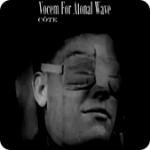
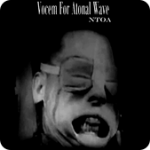
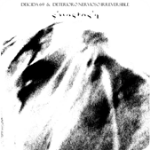
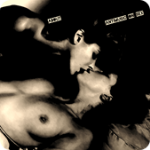
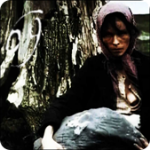
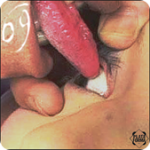
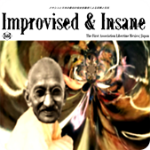
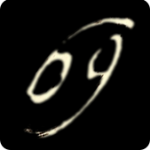

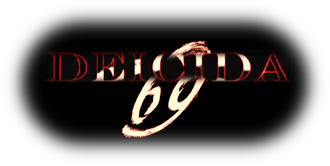


0 comentarios:
Publicar un comentario